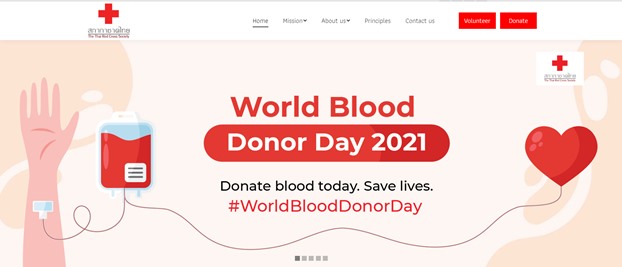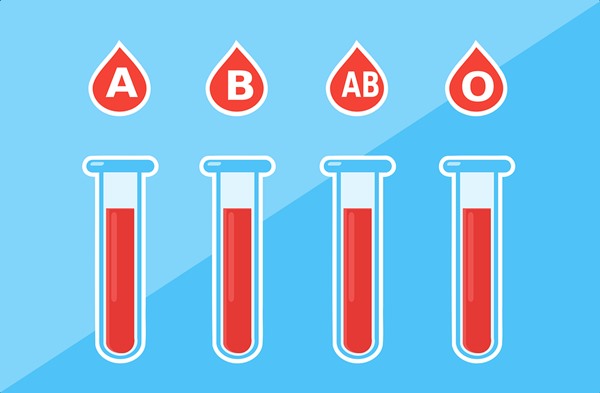
When I was planning on donating blood in Thailand a few years ago, I was told that I couldn’t as I had lived in the UK during the spread of Mad Cow Disease.
That didn’t make any sense to me, as I haven’t eaten meat or any animal products since 1982. But Thai rules on blood donation are what they are, and nothing I could do would change their minds.
Fast forward over a decade later and, with some areas of Thailand now experiencing blood shortages, and the Thai Red Cross calling for emergency blood donations, it is surprising to me and many others just how many people still cannot donate blood in Thailand.
Especially as Thailand is now experiencing a shortage in the blood supply, with 50% fewer people donating blood during the current Covid panic.
So, who cannot donate blood in Thailand?
By the time you have finished reading the following requirements, you may be surprised more people cannot donate blood than can. You may even discover you are one of the millions that can’t.
Particularly as I have lost count of the number of healthy people I know who have attempted to donate blood in the Kingdom, but were turned away. Even though they had no problem giving blood elsewhere.

Who cannot donate blood in Thailand?
The requirements for blood donation in Thailand are laid out by the Thai Red Cross. They are in-depth, often complicated and, sadly, eliminate a large percentage of the population that would give blood if they were allowed to.
According to the Thai Red Cross, these are the requirements for giving blood in Thailand, along with the reasons why you may not be able to.
Some of the restrictions in Thailand around blood donations are based on the World Health Organization’s guidelines. Most others, however are extremely restrictive and make little scientific sense.

Requirements for donating blood in Thailand
1) You must weigh at least 45kg, be in good health and be fit to donate blood
2) Must be 17 to 70 years of age. Donors who are 17 years old must have parental consent, and first-time donors cannot be more than 55 years old.
3) If you are over 55 years old and have never given blood before, you will not be able to.
4) Non-Thais making donations must have been living in the Kingdom for at least six months before they can donate blood.
5) In the case of donors 60-65 years old
- must have been donating blood regularly until you reached age 60
- can donate blood only three times a year
- must have a Complete Blood Count (CBC) conducted each time before you donate blood
- must have Serum Ferritin (SF) and Blood Chemistry (BC) checks done every year before donating blood
- must have a doctor or registered nurse determine and record the result of SF, haemoglobin (Hb) and Hematocrit tests and blood pressure and approve you making a blood donation
6) In the case of donors 65-70 years old:
- must have been donating blood regularly while you were between 60-65 years old
- you can only donate blood twice a year, or every six months
- must have CBC checked every time before donating blood
- must have BC, SF, and EKG checked once a year before donating blood
- must have medical certificate by your doctor or a doctor from the blood donation centre approving you to donate blood
7) Donors must have enough rest, at least six hours sleep, the night before donating blood
8) No diarrhea or stomach problems within the past seven days. You must also not have a cold or fever
9) Pregnant women, new mothers, mothers who are still breast feeding and women who had a miscarriage in the past six months are all not allowed to give blood.
10) Donors weight must be stable or normal. If you had dramatic changes within the past three months without a reasonable explanation, you will not be allowed to give blood.
11) People who have taken aspirin, muscle-relaxant medication or painkillers within the past 3 days will not be allowed to give blood. People who have taken any anti-infection medication (such as antibiotics) within the past seven days will also not be allowed to give blood.
12) Donors must not have asthma, any skin infections, tuberculosis (TB) or any allergies.
13) Donors must not have high blood pressure, diabetes, heart disease, kidney disease, lung disease, cancer, thyroid problems, hemophilia or other diseases or medical conditions.
14) If have had any dental work done, such as tooth extraction, filling, root-canal treatment, plague removal, you must wait at least three days before donating blood.
15) If you had a major surgery, you must wait at least six months. If you have had minor surgery, you must wait one month before donating blood.
16) You or your partner must not have “sexual deviation”. (no idea what this means?)
17) You must have no history of drug use, or have been clear for at least three years and maintain good health.
18) For ear piercings and body tattoos, you must wait at least one year before donating blood.
19) If you received a blood donation from others, you must wait one year before donating blood.
20) If you had malaria, you must wait three years before giving blood. If you visited a country that has malaria, you must wait at least one year before donating blood.
21) Donors must not have been injected with a vaccine within 14 days of giving blood. If you are injected with a serum, you must wait one year before giving blood. (this will eliminate even more potential blood donors in Thailand as time goes on and Covid-19 vaccines become more available)
22) Donors must eat at least one hour before donating blood but avoid eating high-fat food such as Khow Man Kai, Khow Kha Moo, any deep-fried food, dessert or curry made from coconut milk.
The true nature of giving blood in Thailand
Sadly, with so many restrictions when it comes to giving blood in Thailand, few people will bother jumping through all the hoops.
This applies in particular to expats, who do not have to fit into most of these strict requirements in their home countries in order to be a blood donor.
Thailand’s medical authorities should not be surprised then when they constantly have to issue emergency appeals for people to give blood, or when they have to turn down a sizable number of people willing to give blood, but not deemed ‘acceptable’ by the Thai Red Cross.
Nor when the Thai blood supply has a shortage, and people desperately in need cannot get a blood transfusion.
